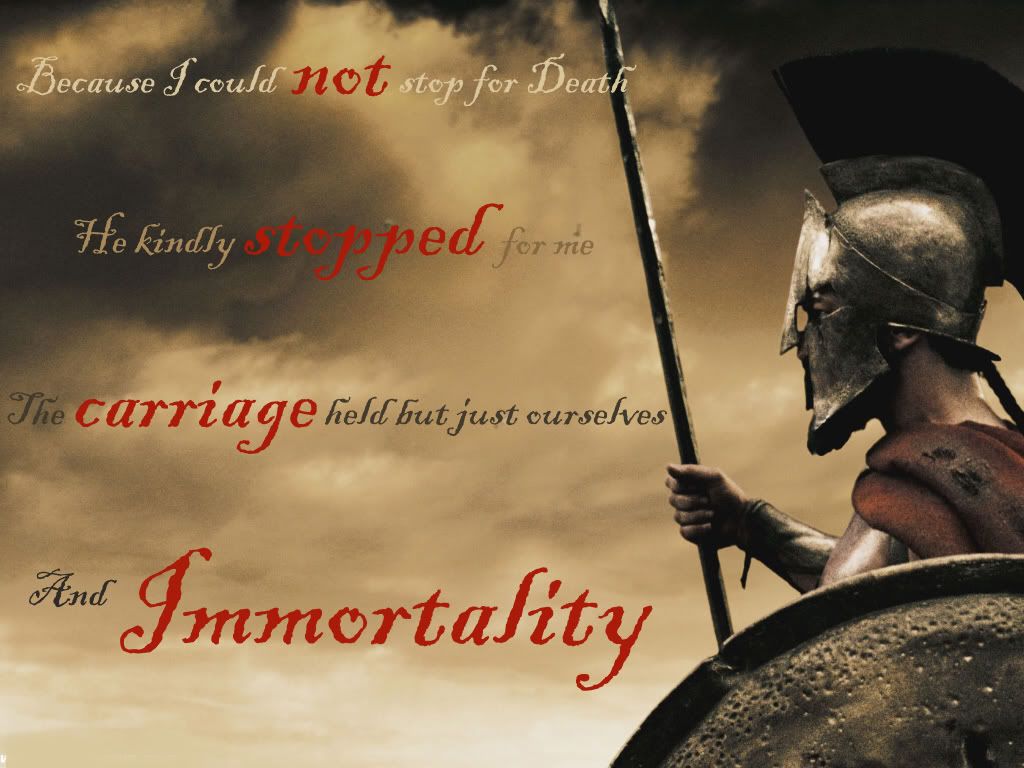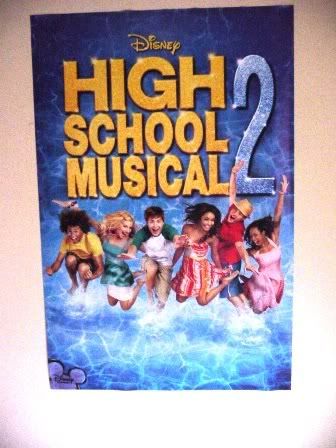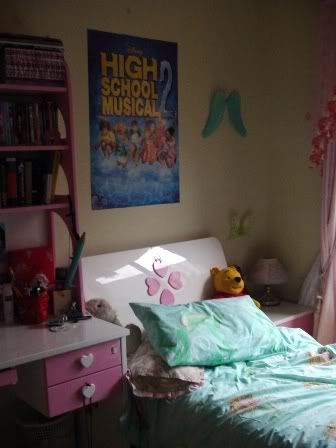"Save a tree, eat a vegetarian!"- Helen Le.
Roffle. In c.l.a.s.s after watching "An Inconvienient Truth," environment on the brain.
And others ones:
Save a tree, eat a cow.
Save a tree, eat a beaver.
Which actually makes sense, because beavers cut down trees. :P
It is 3.25 am here in Aussie land.
Well, actually 2.25 in real time, except I've LOST AN HOUR OF MY LIFE.
thanks to daylight savings.
As some of you may know, I am the kween of procrastination.
Many of you have listened tirelessly to my rants of 9 MORE HOURS TO GOO! ONLY 9!
Although, fair to say, it's usually because of you guys I don't get it done. :P
Anyhoo, this time it was a report on Rich nation/Poor nation, and I chose Luxembourg and Madagascar.
I did most of the research in c.l.a.s.s cos we got a few hours.
Then the teacher said just do a little research over the holidays.
Then we started writing it when term started, just over 2 weeks ago.
When I say "we," I'm talking about the people in my c.l.a.s.s who actually started, not me. :lol:
Week 1 of school.
Meh, I've got a week or so.
Do it later.
Week 2 of school.
Meh, I'll do it later.
Still got a week or so.
Week 2-3 Weekend
Hrrm, should start it on Sunday.
Sunday morning, got on the comp, had my file already and then...
BAM!
Helen has entered the conversation.
Being invited into the Sunday chat means people actually notice you came online.
So I thought, okay, I'll go on for just a little, then do some research.
Next thing I know...
BAM!
It's 3.30 pm, and time for work. :P
Week 3, Monday...TODAY!
At school: stressing to everyone, "Ah, might not come to school tomorrow. Feel like I've got a fever comin' on." :lol: I actually did have a cough. :P
Come home:
"Dad, can I stay home tomorrow and help make the chandelier? (His current DIY project)
"You can come home and help AFTER school."
Me: "-_-"
About 6pm: Oh, feck I need some more research.
About 7.30: Ooh, Australian Idol!
About 9pm: Guh, wanna finish Lost ep. 4. That's all.
About 11 : Guh, can't work in silence. *puts the Hot chick on in the background quietly*
About 1am: Guh, I is so tired. *takes a break and goes to have a drink of water.
About 2am: If I went to sleep now, I'd have about 4 and a half hours of sleep.
About 2.30: 4 hours of sleep.
About 3am: 3 and a half ho-I'M DONE!!!!!WOOT!!!!INYOURFACE!!!
(I actually said that in your face to my stuffed animals. I was a little hallucinatory. :P)
Here's the actual report, if you're weird...bored enough to read it. :P
[spoiler] Rich Nations and Poor Nations
All countries in the world can be c.lassified as rich, developed nations, or poorer, developing nations. Luxembourg is considered to be one of the wealthiest nations in the world, while Madagascar is one of the poorest. This is a result of many factor's, including the management of each country's resources, and the running and current status of their economy, healthcare system and education system.
Luxembourg is a very small country, one of the smallest in the world, located in north-west Europe. It has an area of 2586 square km, and a population of approximately 462 690 people. The population density is around 173.5 people per square kilometre. The residents of Luxembourg are referred to as Luxembourgers.
Madagascar is an island about 400 kilometres off the eastern coast of Africa, and is the world's fourth largest island. It is about 587 040 square km, and there are around 17 501 871 people in Madagascar, which makes the population density 28.1 people per square kilometre. Malagasies are the proper term for the people living in Madagascar.
Healthcare
In Luxembourg, the healthcare system is very developed. The statistics show that for every 393 people in Luxembourg, there is 1 physician, while the Malagasies only have 1 physician per 11 512 people. Madagascar also has less nurses, midwives, dentists and pharmacists for each 1000 people of the population than the Luxembourgers.
Madagascar Luxembourg
Nurses 0.20 9.16
Midwives 0.12 0.25
Dentists 0.02 0.71
Pharmacists 0.01 0.82
In Luxembourg, for every hospital bed, there are 167 people, while in Madagascar, nearly 15 times that amount, 2381 people, are to a hospital bed. The average life expectancy for a Malagasy is 62.1 years, while the Luxembourgers, with an average of 79 years, have nearly 20 more years of life. The infant mortality rate in Luxembourg is only 5 deaths per 1000 live births, while in Madagascar it is 57 deaths out of 1000.
Out of the total amount of money spent on healthcare in Luxembourg, government expenditure stands at 90.4% which is a total 16.7% of the government's total expenditure. In Madagascar however, the government funding makes up a mere 59.1%, which is only 8.7 % of the total government expenditure. This means that healthcare funding is more reliant on private expenditure in Madagascar, which equals less money for spending on different healthcare improvements, such as more hospitals, training for doctors, nurses and other professionals, medicines and surgical equipment, and other necessary resources.
In Luxembourg, 100% of the population have access to clean drinking water sources and improved sanitation, which is very important for a healthy, high standard of living. In Madagascar though, 77% of people in urban areas and only 35% of people in rural areas have access to clean drinking water sources. Only 48% of people in urban areas and 26% of people in rural areas have access to improved sanitation. These statistics show that the Malagasies, as a whole, would have a lower standard of living, and a poorer lifes.tyle due to their inability to access clean water and hygienic places to live.
These statistics clearly show the superiority of Luxembourg's healthcare system over Madagascar's. Having a developed healthcare system helps raise the standard of living for the residents of the country or nation. Less resources like the ones mentioned above means that the healthcare system would be less developed, and less equipped, like Madagacar's in comparison to Luxembourg's. A less developed or poor healthcare system would mean that the people of that country would generally not be as healthy, or enjoy the same lifes.tyle as that of those in the country with the better healthcare system. Having a developed healthcare system has contributed to the majority of Luxembourgers' high standards of living, and it is a factor as to why Luxembourg is such a wealthy, developed nation, while Madagascar is not.
Education
In Madagascar, the expenditure on education annually, as a share of gross national product, is 2.5%. In Luxembourg, 4% of the GNP is spent on education. The literacy rate in Luxembourg is 99.9%, nearly the entire population, whereas in Madagascar, approximately only 70.7% can read. In Luxembourg, the average primary school enrolment is 91% of males and females. In Madagascar however, the numbers are just a small amount lower, with 89% of males and females.
In Madagascar, due to the large population, the number of teachers per people are greatly outnumbered. For example, in primary school, for every teacher, there are 52 students. This is nearly 5 times the amount of students to teacher in Luxembourg, which is 11 primary students per teacher.
Luxembourg's statistics show that they have a higher literacy rate, primary school enrolment number, GNP expenditure on education and more teachers, relative to their population. Having a good education can lead to an improved future with a good occupation, better than one of a person who did not have a good education. A higher standard of education in a country therefore can lead to a lower percentage of unemployment. In Luxembourg, the unemployment number is 4.5% while in Madagascar, it is slightly higher at 5.9%. This can be an indicator that Luxembourg has a better education system, therefore more Luxembourgers are more able to find an occupation.
Economy
GDP is the best measure of the total output of the economy. It is the market value of all the goods and services produced by the economy in a year. In Luxembourg, the GDP was $US 31.8 billion, with a GDP per capita of $US 69 120, which is $US 69 120 per Luxembourger approximately. Luxembourgers have the highest gross national product per capita in the world. In 2004, the GDP for Madagascar was $US 4.9 billion, or just $US 242 per capita. Although GDP per capita is usually not an accurate measurement of a country's wealth, as the amount per capita is not distributed evenly to everyone, it gives a basic look at the supposed wealth, and the comparison between Luxembourg and Madagascar shows that Luxembourgers clearly are richer, on average, than Malagasies.
(Statistics from 2004)
The economy Luxembourg had revenues of $US 13.7 billion, which was nearly 18 times the revenue of Madagascar, which was just $US 783.7 billion. While Luxembourg did not have any debts, Madagascar had external debts to other countries, worth $US 4.6 billion.
These show how much more money the economy of Luxembourg is worth than Madagascar's. While Luxembourg has very high revenues, Madagascar does not do very well in producing profitable goods and services. Madagascar has many debts to other countries, because of the aid those nations provide to them so they can balance out payments for other matters, possibly to other countries again even.
Having a well developed, wealthy economy is a very big contributor to the overall wealth of a country. A country like Luxembourg, with a high GDP per capita and very great numbers of revenues means that the population on the whole are richer, and have a higher standard of living. A country like Madagascar, with a very low GDP per capita, and many debts to other countries means that the residents of that country are basically much poorer, and have a lower standard of living, or a poorer life****
Population
The population of Luxembourg is 462 690 people, with only a population increase rate of 1.28%. Madagascar has 17 501 871 people, with a much higher population increase rate of 3.03%. This means that not only does Madagascar have more inhabitants, but at this rate, the population will increase even more, and soon the number of resources available will shrink in relation to the population. Increased population means that more resources are required in order for the society to keep working, such as: natural resources, like water, oil and other fossil fuels; human resources like labour and capital resources, like machines. After awhile, the demand for these resources will eclipse the available supply, and the resources will become more and more scarce, and eventually run out, unless the society is able to increase itssuppyl in one way or another. eg. hiring more workers, finding new ways to create power.
An increased population also increases the challenges to any normal country. For example, overcrowding in a country can lead to: a decrease in the quality of the nation's health and healthcare system, which means more diseases and sicknesses, requiring more resources; an increased demand for houses; an increased demand for jobs; an increased demand for education. These could both happen in Madagascar, if the population increase became too large to control.
A smaller population means that there are more resources for each individual, such as land, water, jobs and housing. This also increases the GDP amount per capita, so there is more for each person.
These four factors, healthcare, education, the economy and population, all contribute to whether a nation is wealthy and developed, or poor and developing. From the statistics and information gathered, Luxembourg is considered to be a much, much wealthier nation than Madagascar, because it has better maintained and developed healthcare and education systems, a wealthier economy and a smaller population. [/spoiler]
Now, it's 3.30 am.
I can either go to sleep for 3 hours, or just stay up until school and watch Lost or Stargate. Lol.
Which, I've done before, if some of youse remember. :wink:
Loff Kweenie xoxo
![]()









































Log in to comment